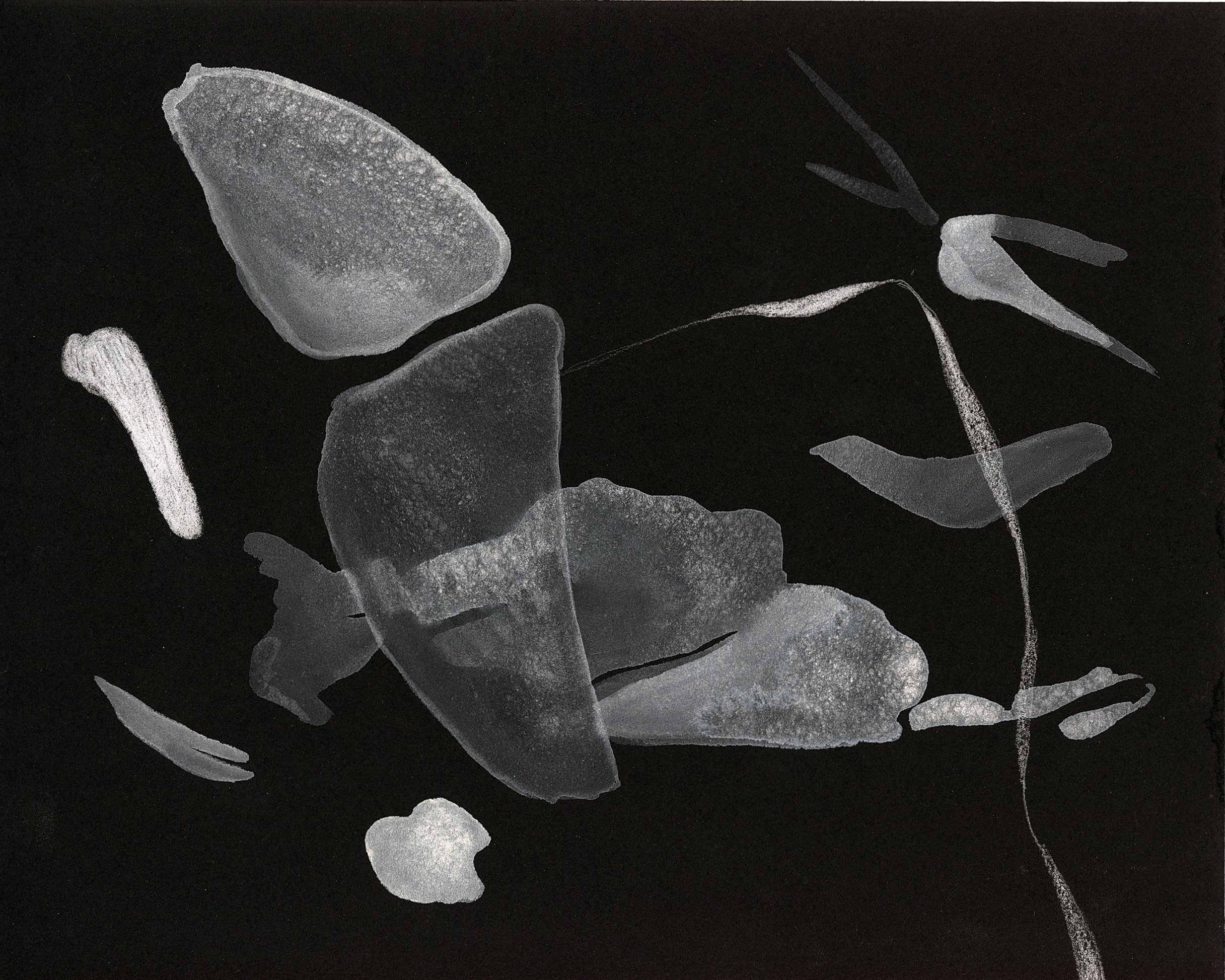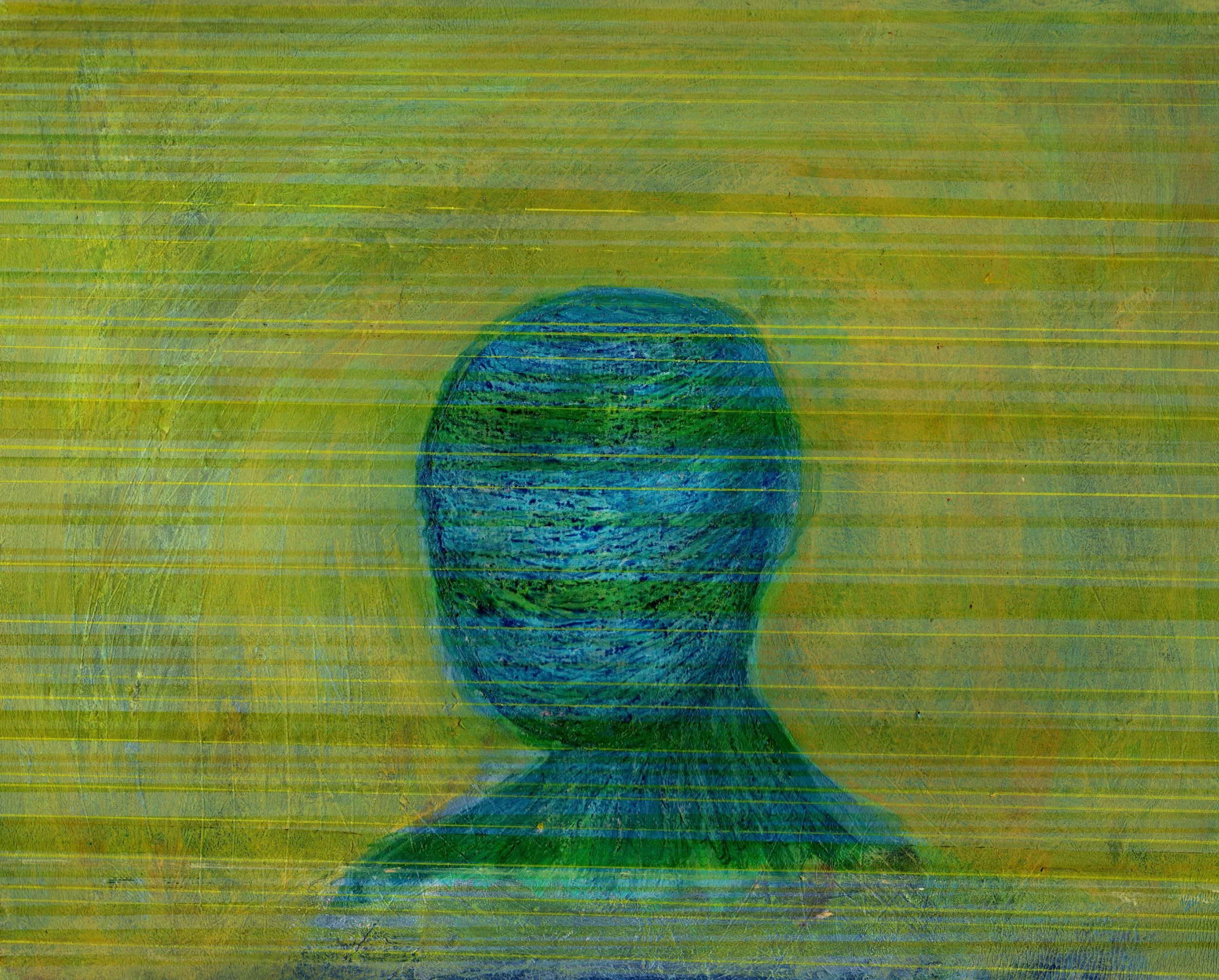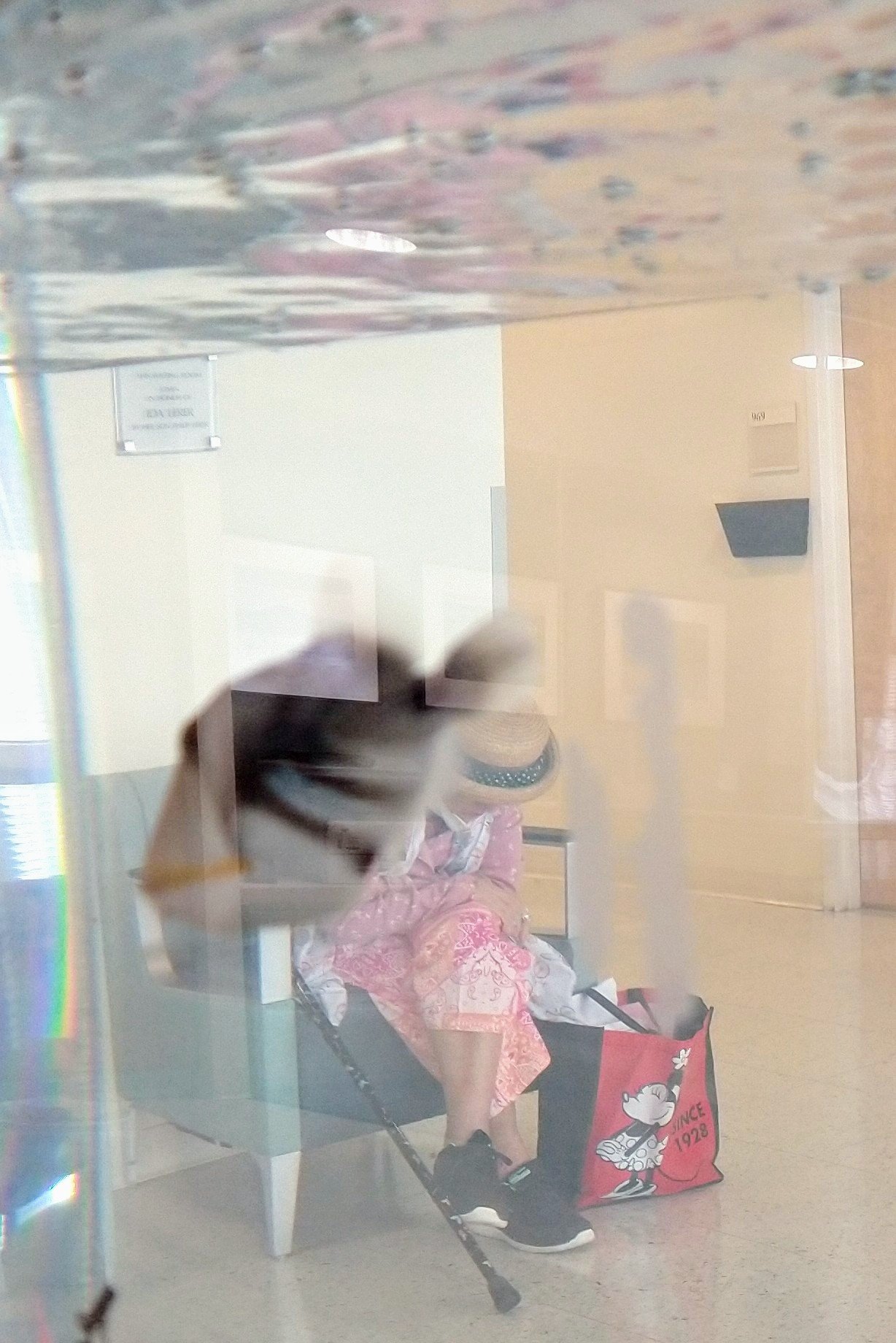“In this reflection, I explore the barriers between understanding grief and communicating with ancestors beyond life…. I particularly focus on what it means to ‘reach’ out for an ancestor across the barrier of their death.”
Read moreThose Who Came Before: A Promise and a Reflection by medical student-artist Angela Tang-Tan
Medical student Angela Tang-Tan, creator of the cartoon, “White Coat Ceremony,” worked as an EMT transporter during the COVID-19 pandemic. In this blog post, she reflects on a poem from that difficult time by by geriatrician Terry E. Hill, MD entitled, “Points of Historical Interest.”
Read moreWe Are Not Amazons: A Reflection by Medical Illustrator Mesa Schumacher
In my professional role as a medical illustrator, I'm often drawn to a good metaphor. As a patient, the allure of metaphor can be dangerous.
Read moreA House, Not a Home: Reflecting how imagery can reveal the human psyche byJennie Vegt
One of the images from the Mitwelt Melt Series by Jennie Vegt. Spring 2024 Intima
“Finding meaning in suffering is sometimes the only coping strategy remaining,” says the artist. This series of six paintings explores grief in a visually complex manner.
Carl Jung believed house imagery in dreams represent the human psyche. In both artworks, the houses are familiar structures of shelter that simultaneously represent ominous confinement and isolation. We may be capable of observing and moving past some psychological structures that have become an obstruction, while others feel intertwined with our very being, like a house that fits more like a skull.
Read moreArt as a Body’s Blessing: A Reflection by physician-poet Sarah Piper
Even with the astonishing knowledge of medicine, the anatomy of an illness cannot fully be known from the outside. It takes an act of tender and careful acquaintance. And the only one who can truly map the illness of a living being is the occupant of an ill body. The geography of sickness is mysterious: its borders begin vague, its peaks conceal its valleys, its oceans rove and deepen and rearrange patterns of flood and firm ground.
Read moreLearning to be Present for an Act of Dying by UCSF Medical Center professor Krishna Chaganti
It is the great privilege of medicine that we are asked to show up, constantly, albeit in a different role than a family member would be. To not look away is in the fabric of what we do. It is partly why the practice of medicine can be exhausting, electronic charting and reimbursement quibbles aside. We are asked as caregivers not to dispense always but to receive, to hear questions that we don’t want to reflect upon. It is our privilege to be present.
Read moreThresholds and Doorways: Exploring Mental Health Narratives Through Art by Emory MD/PhD candidate Aubrey Reed
© Beyond the Threshold Aubrey Reed Spring 2024 Intima
My first-ever clerkship rotation as a medical student immersed me in the realm of inpatient psychiatry. This profound and eye-opening experience blurred the boundaries between sickness and health. It challenged my preconceived notions and deepened my understanding of mental illness.
Read moreA Sestina in Honor of Tia Forsman’s “Remnant” by Lynn Lawrence
“Radiographs serve as distilled moments of a human narrative,
An illness experience in greyscale” (From “Remnant” by Tia Forsman in the Spring 2022 Intima)
Sea glass/cutglass/eyeglass/stonefish/boomerang, Forsman’s remnants
Arrayed/x-rayed on the nightblack ocean floor of shapes and shadows.
From the French : to “rest”; to “remain”, “left over”; an underwater x-ray.
Overlapping, edges blurred, tenderly floating in an uncertain narrative.
This isn’t an x-ray. It just looks like one. Like medicine, a “grey area”
Forman is bilingual.. She paints in watercolor. She speaks in radiology.
We’re Invisible, Too: Showing Respect for Healthcare Workers by Cheryl Bailey
A retired gynecologic oncologist reflects on her own career and realizes how watercolor artwork can allow for even healthcare providers to be seen.
Read moreBefore and After: In Response to “The Face as an Organ of Identity” by California community doctor Katie Taylor
I work at a community clinic with patients who are homeless–there is the stigma of homelessness, and then there is the stigma of looking homeless.
Some patients of mine do not–or do not yet– appear unhoused. It is usually those who still have family that support them, who live in a car, who hold a job—running food for Doordash, picking for Amazon, sitting security—or who have not been homeless for so very long. But many of my patients do appear frankly homeless: a shuffling gait, a blanket draped around their shoulders, belongings pushed in a stroller, blackened teeth, leg wounds.
Fear and Compassion: At the Heart of Panic Attacks by Lisa H.D. Napolitan
© How a Heart Grows. Susan Baller-Shepard. Fall 2018 Intima
Fiction and visual art are a natural pairing, one digging deep through words, the other a profound visual exploration. Both genres allow ways to explore the issue of mental health.
Read moreDementia and Alzheimer’s Disease: When the Outside Looks Different From What’s Happening Inside by Kimberly Mitchell
© The War Outside. From “The Impact of War on Mental Health” series. Claire Lawrence Spring 2022 Intima
One of my most enduring memories of volunteering is of helping with a beauty club for patients with advanced Alzheimer’s Disease. Each week I would be regaled with stories of young women visiting their mothers and planning fun outings with their girlfriends. While I applied makeup and painted fingernails, the smiles and facial expressions were those of young women anticipating a good time.
On the outside these ladies were quite different.
Endurance and Gratitude: A reflection on finding joy in difficult moments by Laura Carmen Arena
Both Karen George’s poem, and my “Triptych:Oncology Fish,” share an expression of admiration for the resplendent inner strength in our loved ones, emanating despite the foreboding shadows of illness, suffering and loss. The emotions floating around our lived spaces as our loved ones endure and battle disease in the face of difficult circumstances move in many directions including grieving, reflecting, hoping, enduring and celebrating, colors that shift and radiate with the heroically hopeful, illuminating presence of gratitude and love.
Read moreOn Subtraction: Understanding What's Lost and Gained in Clinical Encounters by Abby Wheeler
I recognized right away a kinship with Bessie Liu’s “Variations on the Negative Space Before Healing” (Fall 2023) and its use of subtraction to create new meaning; The poem by Liu, a third-year medical student at Johns Hopkins School of Medicine. very much feels like a sister to my poem, At the Doctor’s Office, I Check, Yes, I Have Experienced the Following: Sudden Weight Loss (Fall 2023).
Read moreOn "Feeling Blue" and Self Care: A reflection by neonatologist-poet Elizabeth Osmond
© Feeling Blue Amanda Hage Spring 2022 Intima
It is a challenging time to practice medicine. We are emerging from a global pandemic that is casting a long shadow. This has mingled with austerity for public service funding and a cost-of-living crisis. Members of many healthcare professions have been on strike.
Read moreSeeing Through
A retired nurse remarks on what she has witnessed in the hospital setting via studio art and poetry published in this very journal.
Read moreA Transplant Patient's Reflection on Living While Dying
An artist and organ transplant recipient considers the isolation of her own illness experience and further explores these issues in her graphic medicine comic, published in this very journal.
Read moreBeing More Than Just a White Coat
A visual artist explores the trusting relationship she shares with her psychiatrist—and how that fiduciary manifests itself through her photodrawings and studio art.
Read moreI Am Moments / I Am Nature
Through collage art and poetry, a pathologist comes to understand that our anatomical selves are made up of the same building blocks that comprise all life on earth.
Read moreDesensitization to the Face of Death: A reflection by poet and medical student Catherine Read
A medical student examines the desensitization that imbues the study and practice of medicine—and advocates against it.
Read more







